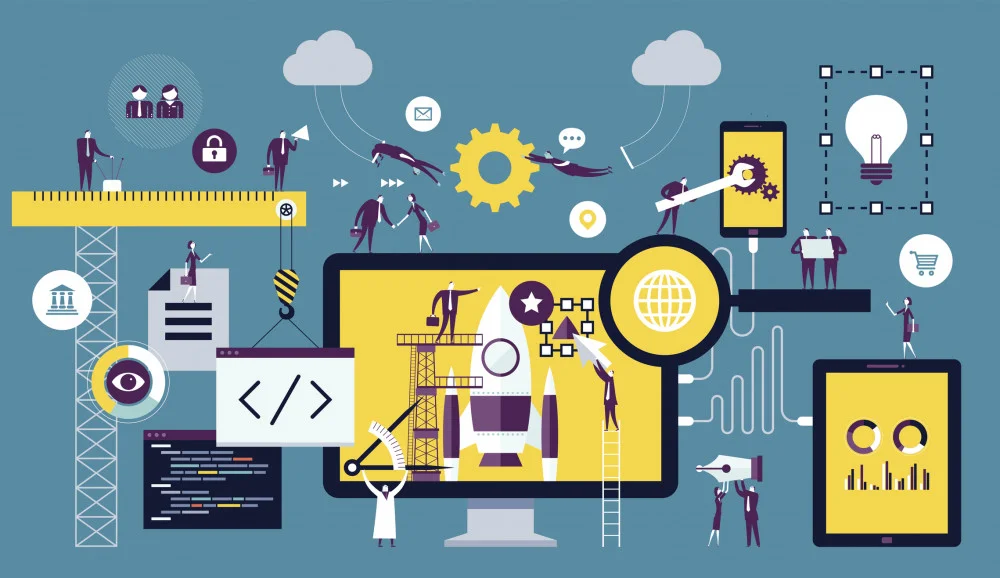Future Skills for Inclusion
On Wednesday, 9 May 2018, the World Economic Forum led the Shaping Inclusive Growth in The Fourth Industrial Revolution workshop. Key thinkers explored and discussed what facets of The Fourth Industrial Revolution can harness and promote inclusive growth in Africa. Below is an overview of the central ideas surrounding the Fourth Industrial Revolution and its numerous implications:
The technological world is growing faster than ever, bringing the Fourth Industrial Revolution even closer to being our reality. The First Industrial Revolution brought us mechanisation, the Second brought mass production and the Third introduced computers and automation. But what about the Fourth Industrial Revolution? What does it entail and what does it mean for us?
The World Economic Forum (WEF), in the 2018 Readiness for the Future of Production Report, described the core features of the Fourth Industrial Revolution as follows:
“Technologies are transcending the computing capabilities associated with the digital revolution, transforming the physical world through robotics and new methods of production; enhancing human beings physically, mentally, and experientially; and permeating the environment to facilitate greater interconnectivity, monitoring, and efficiency of resource use”
Put simply, the world’s technologies are developing incredibly quickly, in a variety of ways, and it is largely positive - there are innumerable benefits that this sort of technological transformation can bring, but the way we live and work will have to change in the process. One of the biggest fears regarding the Fourth Industrial Revolution and its implications, is that people will lose their jobs, en masse. And it is a scary thought to imagine a bunch of really advanced machines and AI systems developing to the point where they replace you. WEF noted that these technological developments “...are spurring the development of new production techniques, business models, and value chains that will fundamentally transform global production” (Readiness for the Future of Production Report, 2018). In other words, the Fourth Industrial Revolution does mean massive change in terms of jobs and, more generally, the way global production is conducted.
But that is not the end of the story - thankfully, the Fourth Industrial Revolution doesn’t have to mean that a machine comes along, steals your job and leaves you in the dust. It does, however, mean that we need to shift the way we look at jobs, education and skills in order to be equipped to both differentiate ourselves from machines, as well as complement their abilities. Of course this requires individuals to be proactive in their own skill development, but WEF also notes that:
“...countries need to build awareness of the changing nature of production, determine how to best prepare to benefit from this transformation and collaborate across the public and private sector to enhance readiness”
Seems obvious, right? Prepare for the Fourth Industrial Revolution as we see it on the horizon, and make sure your country and citizens are skilled enough to benefit from it instead of suffer. Unfortunately, no one is there yet and “no country has reached the frontier of readiness, let alone harnessed the full potential of the Fourth Industrial Revolution in production” (WEF, 2018). With technological development moving as quickly as it is, it’s imperative for countries to adapt and change in ways that not only welcomes this progress, but take full advantage of the opportunities that will come with it. This means investing time, money and significant energy in reskilling people to leave replaceable jobs behind, and become invaluable in their differentiation from machines.
“Moving forward, people, employers and policy makers alike need to realise that success in the Fourth Industrial Revolution lies in the individual’s ability to both differentiate from and complement machines”
So, we know what the Fourth Industrial Revolution is, what it’s implications are and what we should be doing, but what is really happening around the world? People are scared. Scared about the fact that “disruptive technological and socio-economic forces threaten to swiftly outdate the shelf life of people’s skillsets and the relevance of what they thought they knew about the path to social mobility and rewarding employment,” and this is in part because of a lack of “willingness to make a reasonable investment in reskilling that will bridge workers onto new jobs” (WEF, 2018). This needs to change because employers simply cannot maintain hiring an entirely new workforce each time a new skill set is required. Rather, there needs to be an increased focus on “reskilling and human capital development.” Workers should also be actively engaged in developing their skill-set, as it removes job insecurity to a large degree, and opens the door to a range of job and career opportunities that are likely more meaningful, stable and fulfilling. Who wants to do a job that a machine can do, anyway?
The world is changing, and The Fourth Industrial Revolution is bringing of the most transformational developments to our lives. Moving forward, people, employers and policy-makers alike need to realise that success in the Fourth Industrial Revolution lies in the individual’s ability to both differentiate from and complement machines, working with them rather than in opposition to them. WEF notes that a key facet of The Fourth Industrial Revolution is the uncertainty of it, specifically because we are not even aware of what skills will be essential in the future.
Preparation is necessary, as WEF notes in their 2018 Towards a Reskilling Revolution Insight report:
“To make reskilling real, and prepare for accelerated structural change of the labour market, a wide range of stakeholders — governments, employers, individuals, educational institutions and labour unions, among others — will need to learn to come together, collaborate and pool their resources more than ever before.”



